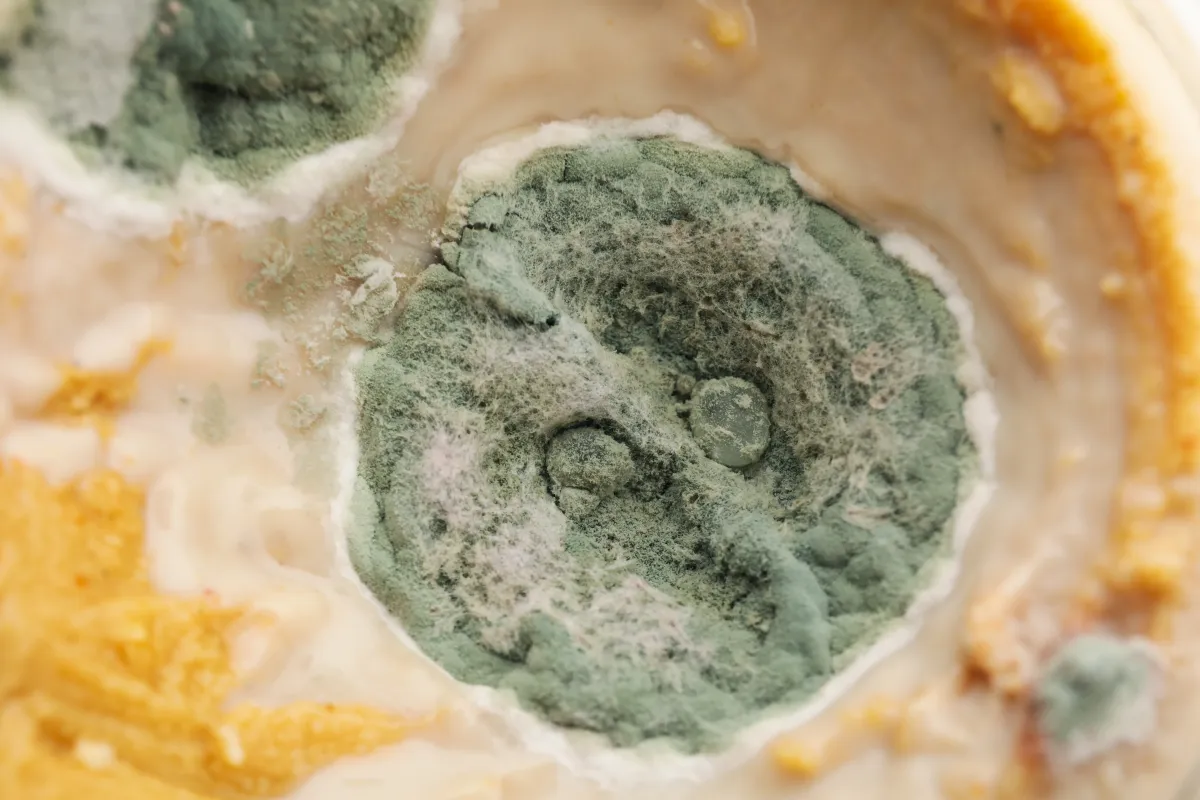Mould sensitivity: Gut Health
Mould sensitivity is an allergic reaction to airborne mould spores, causing respiratory symptoms that can be managed by reducing exposure, using medications, and seeking medical guidance if necessary.

Description of Mould sensitivity:
Mould sensitivity, also known as mould allergy, is a condition where individuals experience allergic reactions to mould spores present in the environment. These microscopic spores, released by moulds as a part of their reproductive process, can trigger an immune response in sensitive individuals when inhaled.
Symptoms of Mould Sensitivity: Individuals with mould sensitivity may exhibit symptoms similar to other allergic reactions. Common symptoms include sneezing, runny or stuffy nose, coughing, postnasal drip, and itchy eyes, nose, or throat. In more severe cases, symptoms can escalate to include asthma-like symptoms such as wheezing, shortness of breath, and chest tightness. Individuals with pre-existing respiratory conditions like asthma or chronic obstructive pulmonary disease (COPD) may experience worsened symptoms upon exposure to mould.
Causes and Risk Factors: Mould thrives in damp, warm, and humid environments and can be found indoors in areas like bathrooms, basements, and kitchens, or outdoors in compost piles, and fallen leaves. Risk factors for developing mould sensitivity include having a family history of allergies, living in a house with mould infestations, working in occupations that expose you to mould frequently, or having other existing allergies or asthma.
Diagnosis and Management: Mould sensitivity is typically diagnosed by an allergist through skin tests or specific IgE blood tests to identify the presence of mould-specific antibodies. Management includes minimizing exposure to mould by keeping indoor humidity levels low, promptly addressing leaks and damp areas, using HEPA filters, and avoiding outdoor activities in damp conditions. Antihistamines or nasal corticosteroids can be used to relieve symptoms, while more severe reactions might require treatment with allergy shots or other medications.
Conclusion: Mould sensitivity is a significant health issue for affected individuals, requiring proactive measures to mitigate exposure and manage symptoms effectively. If symptoms persist or worsen, it is crucial to seek guidance from healthcare providers to identify appropriate interventions.
Role of Gut Imbalances in mould sensitivity:
Gut imbalances significantly impact mold sensitivity through several pathways. A healthy gut functions as a crucial component of the body's immune system and acts as a barrier against toxins and pathogens. However, when there is a disruption in the gut flora, known as dysbiosis, it can lead to a compromised gut wall that becomes "leaky." This condition allows unwanted substances, such as mold toxins, to penetrate into the bloodstream more easily.
A compromised gut wall reduces the body's ability to defend against mold and other environmental toxins effectively. In addition, gut imbalances can lead to nutritional deficiencies, which further undermine the immune system's capacity to respond to allergens. This weakened immune response increases susceptibility to mold, potentially leading to amplified sensitivity or allergic reactions.
Thus, gut dysbiosis contributes to both a weakened immune system and a compromised physical barrier, which are crucial in managing and mitigating sensitivity to mold and environmental allergens. Maintaining a balanced gut flora is essential to ensure strong immune defense mechanisms and a resilient barrier to harmful substances.
